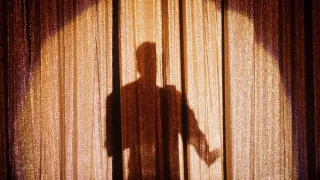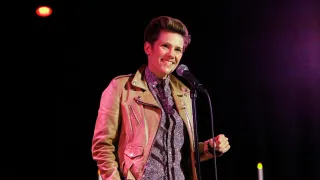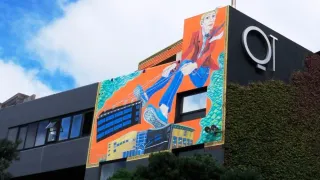
4 hours ago
Lush Launches Trans Flag Bath Bomb, Donates Profits to Transgender Advocacy
READ TIME: 3 MIN.
Lush Cosmetics, the internationally recognized ethical beauty retailer, has launched a limited-edition bath bomb inspired by the colors of the trans pride flag—blue, pink, and white. The product, named the Liberation Bath Bomb, is now available in stores and online across the UK, Ireland, Australia, and select European markets from September 10, 2025, and is designed both as a fundraiser and a visible symbol of support for transgender and gender-diverse communities .
The bath bomb fizzes into soft hues reflecting the trans flag and features the brand’s American Cream fragrance, described as a sweet vanilla with warm benzoin resin undertones. Priced at £6 in the UK and $12 AUD in Australia, it is both an affordable luxury and a charitable action for consumers .
Seventy-five percent of the sale price will be donated to organizations advocating for transgender rights. In the UK, the proceeds support groups such as TransActual, My Generation, and the Transgender Equality Network Ireland (TENI), while in Australia, the primary beneficiary is TransHub, a resource platform operated by LGBTQ+ health organization ACON .
Jessielee Pearce, Advocacy and Activism Executive at Lush Australia, stated, “We cannot stand by while misinformation about the trans and gender-diverse community goes unchallenged. We are honoured to uplift the essential work of TransHub. Their expertise and advocacy are crucial in creating a safer, more inclusive Australia for all” .
Keyne Walker, Strategy Director at TransActual, emphasized the importance of such partnerships: “With our legal rights being thrown into confusion, this is a crucial time for LGBTQ+ people and our allies to be vocal and explicit in their support and inclusion of trans people across society” .
The release of the Liberation Bath Bomb follows significant developments affecting transgender communities worldwide. In the UK, the Supreme Court recently ruled that the legal definition of “woman” in the 2010 Equality Act does not include transgender women, a decision that has sparked concern among queer advocates about legal protections and public recognition for trans women .
In Australia, the launch coincides with the Queensland government’s decision to stop, at least temporarily, gender-affirming healthcare for minors not already receiving such care. The measure has been widely criticized by health professionals and queer advocates, who warn that delays in gender-affirming care can cause significant mental health risks for young transgender people. Protests have occurred outside the Queensland Health Minister’s office, and legal action has been initiated by affected families, reflecting the urgent need for both advocacy and material support for the community .
Lush has a longstanding history of supporting queer rights through advocacy campaigns and internal policies. The company’s activism includes educational resources like its ‘How to be a trans ally’ guide and prominent window displays in all 101 UK stores in the colors of the trans pride flag earlier this year .
In tandem with the Liberation Bath Bomb launch, Lush has introduced a Gender Affirming Care policy for its UK and Ireland staff, providing dedicated transitioning leave and a range of support tools for transgender, non-binary, and gender-diverse employees. The company describes the policy as a reflection of its commitment to “creating a diverse and inclusive working environment and supporting trans, non-binary and gender diverse employees” .
A spokesperson for Lush stated, “This campaign comes from the heart of the business. Requested by our staff and led by our incredible campaign partners, it comes at a time where positive trans representation is needed to counterpoint some of the toxic narratives that have been shaping public discourse. We hope that the vision presented in this campaign becomes reality and helps to shape a world we can all be proud of” .
The Liberation Bath Bomb campaign is currently running in the UK, Ireland, and Australia, with a scheduled rollout in the Netherlands in partnership with Transgender Network Netherlands, and plans for further global expansion .
The initiative has received widespread praise from LGBTQ+ organizations and allies, who see it as both a material contribution and a visible act of solidarity at a time when trans rights are under increasing scrutiny. For many, the bath bomb’s presence in mainstream retail spaces signals growing acceptance and support, while its fundraising element provides direct aid to groups on the front lines of advocacy and care .






